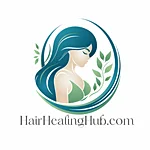Nourishing Your Hair from Within: The Role of Diet in Hair Porosity
Diet’s impact on hair porosity plays a pivotal role in maintaining your hair’s health and beauty. While many are aware of external treatments for hair care, the importance of nutrition in determining your hair’s ability to absorb and retain moisture – its porosity – is often overlooked. This article delves into how your dietary choices influence your hair’s porosity and overall health.
The Connection Between Diet and Hair Health
Your hair’s health is a reflection of your overall nutritional status. A well-balanced diet rich in vitamins, minerals, and proteins is essential for healthy hair. Specific nutrients play a direct role in improving hair texture and mitigating porosity issues. For instance, Omega-3 fatty acids found in fish, flaxseeds, and walnuts help nourish the hair, promoting a more balanced porosity. Similarly, vitamins A and C, abundant in fruits and vegetables, support sebum production and collagen formation, respectively, contributing to healthier hair follicles and reduced porosity imbalances.
Micronutrients and Their Role
Micronutrients like zinc, biotin, and vitamin E also play a crucial role. Zinc helps in repairing hair damage and keeping the oil glands around the follicles working correctly. Biotin, a B vitamin, is known for its hair-strengthening properties, while vitamin E provides antioxidant effects that can help prevent oxidative stress in hair follicles. Learn more about tailored care in Tailored Care for Each Hair Type (1.5.).
How Proteins and Iron Affect Hair Porosity
Proteins and iron are fundamental to hair strength and structure. Keratin, a protein that makes up a significant portion of your hair, relies on a protein-rich diet. Insufficient protein intake can lead to weaker hair strands, increasing their porosity. Iron, particularly found in leafy greens and red meat, aids in hair growth and repair. A diet lacking in iron can exacerbate hair porosity issues by weakening the hair’s overall structure. For more on this, explore our section on Hair Growth Cycle (1.2.).
The Role of Antioxidants in Hair Health
Antioxidants are vital for combating oxidative stress, which can damage hair follicles and affect porosity. Foods rich in antioxidants, such as berries, nuts, and green tea, can protect your hair and improve its ability to retain moisture. Dive deeper into this topic in our Latest Hair Care Research (5.1.) section.
Hydration and Hair Porosity
Hydration isn’t just about drinking water; it’s also about consuming water-rich foods. Foods like cucumbers, berries, and melons can significantly contribute to your hair’s hydration levels, thus affecting its porosity. Proper hydration helps in maintaining the hair’s elasticity, reducing the likelihood of high porosity due to brittleness and breakage. Discover more about this in Common Hair Problems and Solutions (1.3.).
Balancing Macronutrients for Hair Porosity
Balancing macronutrients like carbohydrates, fats, and proteins is essential for overall hair health. Complex carbohydrates found in whole grains and vegetables provide the energy your hair follicles need to grow healthy hair. Healthy fats, especially those rich in Omega-3 and Omega-6 fatty acids, nourish the scalp and hair, impacting porosity positively.
The Impact of Sugar and Processed Foods on Hair Health
Excessive consumption of sugar and processed foods can lead to inflammation and oxidative stress, negatively impacting hair health and porosity. This directly relates to the Diet’s Impact on Hair Porosity, as such dietary choices can exacerbate hair issues. Foods high in sugar and unhealthy fats may disrupt the delicate balance of nutrients required for maintaining healthy hair, leading to increased porosity and susceptibility to damage. Moreover, these foods can impair the body’s ability to effectively absorb essential nutrients, further diminishing hair health. By reducing the intake of sugar and processed foods, not only can you mitigate these adverse effects, but you can also promote a more balanced hair porosity. Emphasizing a diet rich in whole foods and natural nutrients plays a pivotal role in achieving and maintaining the ideal structure and health of your hair. Adapting your diet to include more natural, unprocessed foods can have a profound effect on your hair’s porosity, texture, and overall health, embodying the core principle of Diet’s Impact on Hair Porosity.
Dietary Supplements for Hair Health
In some cases, dietary supplements might be necessary to address specific deficiencies that affect hair porosity. Supplements like biotin, zinc, and fish oil can support hair health when dietary intake is not sufficient. However, it’s always best to consult with a healthcare professional before starting any supplement regimen.
The Importance of a Balanced Diet for Hair Health
The Importance of a Balanced Diet for Hair Health A balanced diet, rich in a variety of nutrients, is the most effective way to impact your hair’s porosity and overall health positively. Including a mix of fruits, vegetables, whole grains, lean proteins, and healthy fats ensures your hair receives the nutrition it needs. This aligns with the understanding of Diet’s Impact on Hair Porosity, highlighting how crucial dietary choices are for hair health.
In summary, Diet’s Impact on Hair Porosity is significant. By focusing on a nutrient-rich diet, you can improve your hair’s health from the inside out, leading to better moisture retention and overall hair appearance. Remember, a holistic approach to hair care, encompassing both external treatments and internal nutrition, is essential for maintaining the ideal hair porosity.
For more insights into effective hair care strategies and understanding the intricate aspects of hair health, visit our website. Explore our extensive resources and read our articles to embark on a journey of complete hair wellness.
